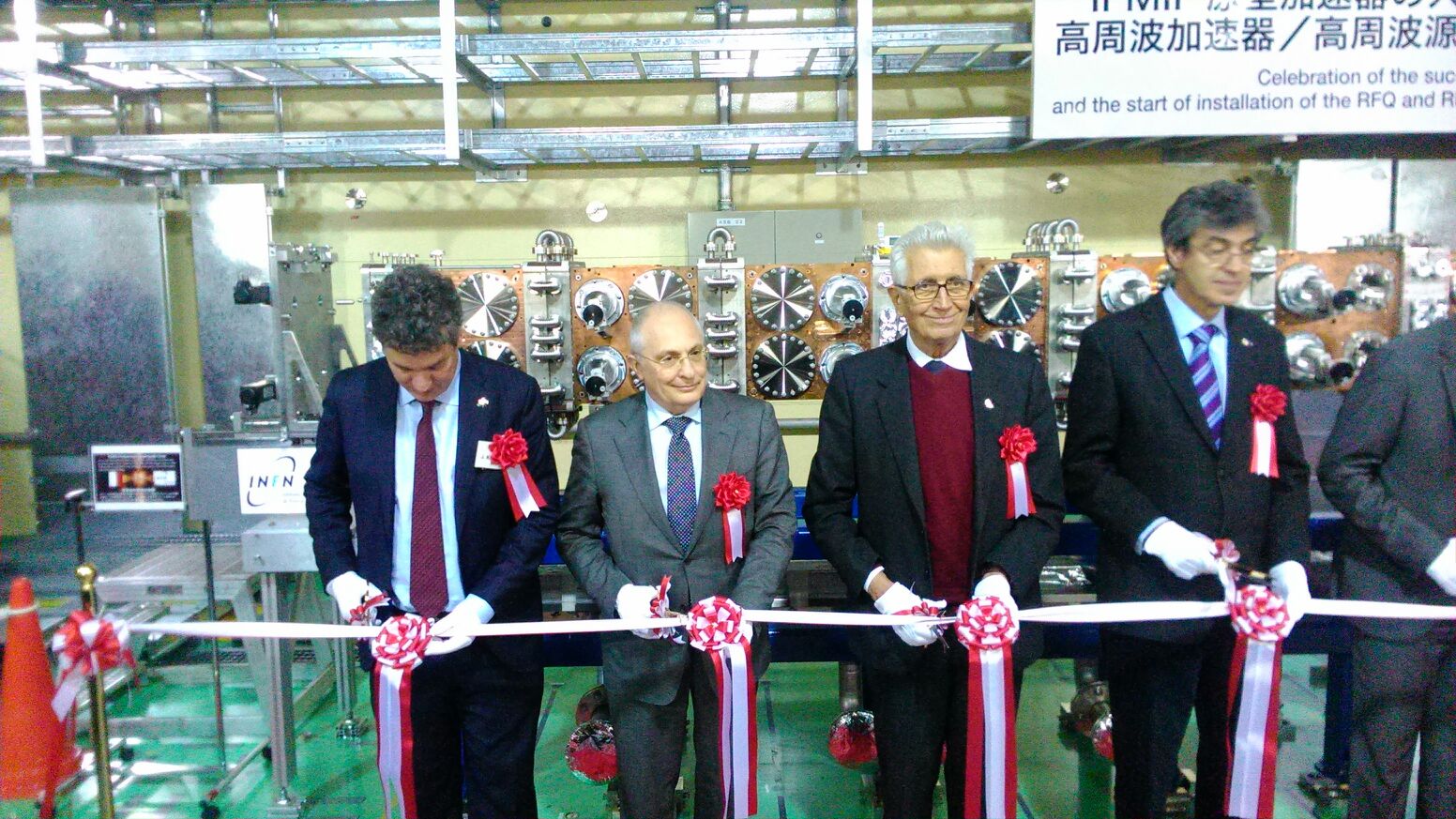 The ceremony for the RFQ (Radio Frequency Quadrupole) was held on April 21 in Rokkasho, Japan. The RFQ has been made by the INFN National Laboratories of Legnaro for the accelerator of high intensity Lipac, prototype of the International Fusion Material Irradiation Facility IFMIF. Eugenio Nappi, member of the INFN Executive Board, Giovanni Fiorentini, director of the INFN Laboratory of Legnaro (LNL), Andrea Pisent, INFN researcher and the RFQ project coordinator and Amedeo Staiano, director of INFN Turin Division took part to the event as Italian delegates.
The ceremony for the RFQ (Radio Frequency Quadrupole) was held on April 21 in Rokkasho, Japan. The RFQ has been made by the INFN National Laboratories of Legnaro for the accelerator of high intensity Lipac, prototype of the International Fusion Material Irradiation Facility IFMIF. Eugenio Nappi, member of the INFN Executive Board, Giovanni Fiorentini, director of the INFN Laboratory of Legnaro (LNL), Andrea Pisent, INFN researcher and the RFQ project coordinator and Amedeo Staiano, director of INFN Turin Division took part to the event as Italian delegates.
The preliminary phase of IFMIF (which is named IFMIF EVEDA - Engineering Validation and Engineering Design Activities) is the result of a collaboration between Europe - with Italy, France and Spain responsible for the accelerator and high-tech instrumentation - and Japan, which provides the infrastructure and site for experimentation in the coming years, in Rokkasho. Here, in April, a ceremony was held for the delivery of the RFQ (Radio Frequency Quadrupole), built at the INFN National Laboratories of Legnaro as the Italian contribution to the very high intensity LIPAc (Linear IFMIF Prototype Accelerator) accelerator, prototype of the IFMIF. Designed and built by a team of physicists and engineers from LNL and from the INFN divisions of Padua, Turin and Bologna, thanks to a special allocation of 25 million euros to INFN by the Minister of Education, University and Research (MIUR), the radio frequency quadrupole (RFQ) of the IFMIF prototype accelerator is a very advanced system, capable of producing the maximum intensities of he accelerated particle beam. It has as its ultimate goal the production of very intense neutron fluxes to bombard the materials that will be implied in the construction of critical parts of future nuclear fusion power plants. The RFQ consists of a ultra-pure copper structure, approximately 10 metres long, constructed with high mechanical precision criteria, capable of accelerating a continuous and very intense beam of deuterons (deuterium nuclei) up to 5 MeV. The INFN is one of the few research institutes in the world capable of providing the technologies and skills necessary for the construction of accelerators of this type. After the design and production of the prototypes and of the most complex parts, implemented within the INFN, the construction was awarded, under the supervision of INFN, to specialised companies via international tenders, in which Italian companies obtained particularly encouraging results, demonstrating the validity of Made in Italy also in areas such as very high-precision mechanics and electronics for power radiofrequency






